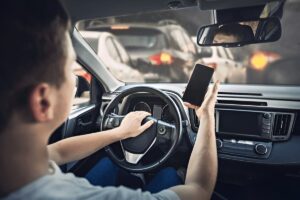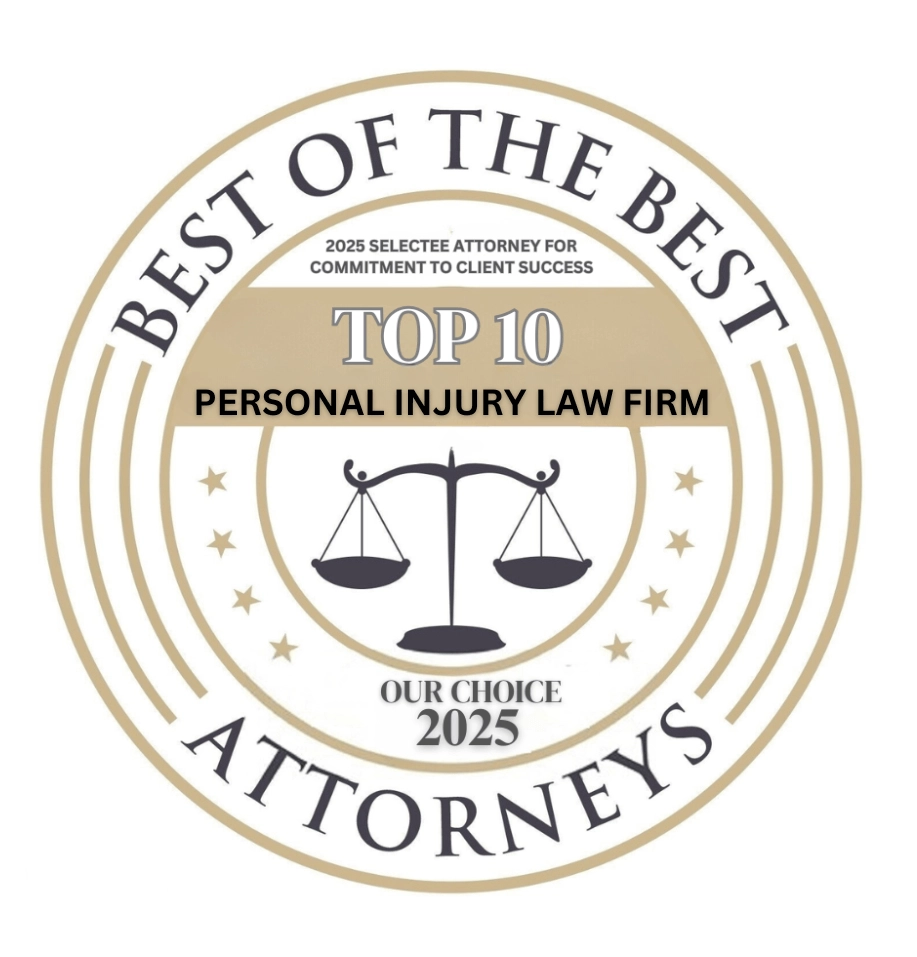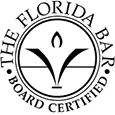What Counts as Distracted Driving in Florida?
You saw it happen. The other driver was looking at their phone, eating, or handling something in their car instead of watching the road. Now, you’re left with the consequences and want to know what counts as distracted driving in Florida. The answer is broad: any activity that diverts a person’s attention from the primary task of driving is a distraction.
Florida law specifically targets texting and driving, but the scope is much wider for a personal injury claim. A driver’s selfish or careless action, even if not technically illegal, is often powerful evidence of negligence.
A car accident lawyer uses this evidence to hold the at-fault driver accountable for the harm they caused.
Table of Contents
ToggleThe Three Core Types of Driver Distraction

Distractions fall into three main categories: visual, manual, and cognitive. Although many tasks simultaneously involve more than one of these types, making them all the more dangerous
Visual Distractions
A visual distraction takes the driver’s eyes off the road. The road ahead requires constant attention; even a few seconds of looking away is enough to cause a serious crash. Common examples include looking at a navigation screen, watching a video on a phone, or turning to look at passengers.
Manual Distractions
A manual distraction takes the driver’s hands off the steering wheel. Safe vehicle control requires both hands for quick reactions and stability. A driver who is texting, eating, adjusting the radio, or reaching for an object is manually distracted from the task of driving safely.
Cognitive Distractions
Cognitive distractions are mental activities that distract the driver from driving. They’re the most deceptive type of distraction, as the driver could appear to be looking at the road but isn’t truly processing the information.
Examples include getting lost in a daydream, having a stressful phone conversation, or thinking intently about a problem at work.
Florida’s Specific Laws on Distracted Driving
While the general definition of distraction is broad, Florida has specific statutes targeting the use of wireless devices. It’s illegal to manually type or enter letters, numbers, or symbols into a wireless device while driving.
This includes texting, emailing, and instant messaging. Law enforcement has the authority to pull over a driver for this violation alone.
The law becomes stricter in designated school crossings, school zones, and active work zone areas. In these zones, drivers are prohibited from holding or handling a wireless communications device at all. All communication must be done through a hands-free system.
Other Common Examples of Distracted Driving in Florida
Beyond texting, countless other actions are clear forms of driver negligence. Any of these behaviors provides strong evidence to support your claim for compensation.
Here are some of the most frequent types of distractions that cause accidents:
- Using a Cell Phone for Calls: A driver talking on a handheld phone is manually and cognitively distracted, even if it’s not illegal in that specific situation.
- Interacting With In-Vehicle Systems: A driver programming a GPS, adjusting complex climate controls, or fiddling with a car’s infotainment screen is taking their eyes and mind off the road.
- Eating and Drinking: Attempting to eat a messy meal or handle a drink takes hands off the wheel and eyes off the road, creating a significant risk of a collision.
- Personal Grooming: Applying makeup, shaving, or adjusting clothing while the vehicle is in motion is a clear example of dangerous and negligent behavior.
- Interacting With Passengers or Pets: A driver turning to scold a child, calm a loose pet, or engage in a heated/emotional conversation with a passenger isn’t paying attention to their surroundings.
Actions Don’t Have To Be Illegal To Be Negligent
Many people believe that if a driver’s action wasn’t explicitly illegal, it doesn’t matter in a crash case. This is completely false. The standard for winning a personal injury lawsuit or claim is proving negligence, which means showing the other driver failed to use reasonable care.
Spilling hot coffee, arguing with a passenger, or putting on makeup aren’t against a specific Florida statute, but they’re clearly careless actions that may result in a crash. A lawyer argues that these behaviors are a breach of the driver’s duty to operate their vehicle safely.
Negligence in a Distracted Driving Claim
The legal foundation of any distracted driving claim is the principle of negligence. This legal term simply means that another person failed to act with a reasonable level of care, and their failure caused you harm.
Every person who gets behind the wheel of a car in Florida accepts a legal duty. They have a responsibility to operate their vehicle safely and to pay attention to their surroundings. Drivers owe this duty to every other person on the road, including you.
When a driver chooses to text, eat, or do anything else that takes their attention away from driving, they breach this duty. They’re not acting as a reasonably careful driver would. This failure to act safely is a negligent act.
Your attorney draws a direct line from that negligent act to the crash and to the injuries you suffered. The simple act of being careless is enough to establish negligence and hold the other driver financially responsible for your losses.
Gathering Evidence To Prove Negligence
A distracted driving crash isn’t an accident. It’s the direct result of a driver’s choice to prioritize another activity over the safety of others. That choice is negligence.
A lawyer’s job is to prove how the negligent choice caused your injuries. This involves gathering different kinds of proof to build a powerful case.
An attorney uses several methods to show that the other driver wasn’t paying attention:
- Subpoenaing Cell Phone Records: Your lawyer can obtain the at-fault driver’s cell phone records for the time of the crash. These records show all calls, texts, and data usage, often providing undeniable proof of illegal or distracting activity.
- Locating Eyewitnesses: A witness who saw the other driver looking down at their phone or eating just before the crash provides powerful, independent testimony. Your legal team works to find and interview anyone who saw what happened.
- Analyzing Video Footage: Many accidents are captured on traffic cameras, business surveillance systems, or dash cams from other vehicles. This video evidence is often the most compelling proof of a driver’s inattention.
- Examining the Police Report: The official accident report often contains the officer’s own observations, statements from the other driver, and notes about potential distractions.
- Hiring Accident Reconstruction Experts: In complex cases, experts reconstruct the accident to show how a driver’s reaction time was delayed due to inattention. This scientific evidence demonstrates how the distraction led directly to the collision.
How a Lawyer Can Help Your Distracted Driving Case in Florida
A personal injury lawyer builds a comprehensive case to demonstrate how the other driver’s distraction led directly to your injuries. They handle the entire process of gathering evidence and fighting the insurance company, so you are able to focus on your recovery.
Investigating the Crash Immediately
Your lawyer launches a swift investigation to preserve critical evidence before it disappears. They take sworn statements from witnesses, document the scene, and send legal notices to the at-fault driver and their insurer to demand that evidence, like cell phone data, not be erased.
Using the Law to Your Advantage
An attorney uses the specific Florida statutes, like the texting ban, as a foundation for your claim. If the other driver was violating the law, it creates a strong presumption of negligence. They also use the broader definition of negligence to hold the driver accountable for any other careless action.
Standing Up to the Insurance Company
Your lawyer directly confronts the insurance company’s predictable tactics. The at-fault driver’s insurer will likely try to downplay the role of distraction. The adjuster may admit their driver was on the phone but argue it was hands-free, or they may attempt to shift blame to road conditions or to you.
Their goal is to create doubt and argue that the distraction was not the primary reason for the collision. An experienced attorney anticipates these exact arguments. They use expert testimony on cognitive impairment to show that even hands-free conversations impair reaction time.
Your attorney uses Florida’s own legal precedents, showing how courts consistently recognize such distractions as a direct and foreseeable cause of harm. By building this detailed case, your lawyer proves that the driver’s inattention was the critical event that set the crash in motion.
This methodical approach demonstrates that the other driver’s negligence was the true cause of your injuries, leaving the insurer with little room to argue.
Proving the Full Extent of Your Damages
Your attorney documents all of your losses that resulted from the distracted driving accident. This includes all medical expenses, lost wages from being out of work, and the non-economic costs of your physical pain and emotional suffering.
They build a case to seek compensation for every aspect of your harm.
Fighting for Fair Compensation
Your lawyer can directly challenge the at-fault driver’s insurance provider. The insurer’s goal is to minimize your claim and protect its profits. Your attorney rejects lowball offers and presents a demand for the full value of your damages, backed by powerful evidence.
They negotiate from a position of strength, always prepared to take your case to trial if the insurance company refuses to act fairly.
FAQ for What Counts as Distracted Driving in Florida
What Is the Difference Between Distracted Driving and Reckless Driving in Florida?
Distracted driving is a form of negligence, which is carelessness. Reckless driving is a more serious offense defined as driving with a “willful or wanton disregard” for the safety of others.
While a distracted driver acts carelessly, their actions may not always rise to the high legal standard of reckless driving. However, in some severe cases, they do.
Is Talking on a Hands-Free Device Still Considered a Distraction?
While using a hands-free device isn’t illegal in most situations in Florida, it’s still a form of cognitive distraction. A driver deep in conversation isn’t fully focused on the task of driving.
In a personal injury claim, your lawyer argues that this cognitive distraction was a form of negligence that contributed to the crash.
What if the Other Driver Denies They Were Distracted?
It’s extremely common for distracted drivers to deny their actions, which is why a lawyer’s independent investigation is necessary. Your attorney works to gather objective evidence, like cell phone records or witness testimony, that proves the distraction occurred.
What Compensation Is Available After a Distracted Driving Accident?

You have the right to seek compensation for all of your accident-related losses, including economic damages, such as all medical bills and lost wages. Your claim may also include non-economic damages for your physical pain, mental anguish, scarring, and the loss of enjoyment of life.
How Long Do I Have To File a Claim in Florida?
Florida sets a strict two-year legal deadline, called the statute of limitations, for filing a personal injury lawsuit. If your property, such as a car or bicycle, was damaged, you usually have four years to file a claim.
If you miss your deadline, you permanently lose your right to seek compensation in court. Contacting an experienced personal injury attorney quickly after an accident is the best way to protect your rights.
Hold a Careless Driver Accountable
You don’t have to bear the financial and personal burden of another person’s poor decision. You can hold them accountable and seek the necessary resources to rebuild your life. Contact Boohoff Law, P.A. 24/7 at (877) 999-9999 for your free, confidential consultation.
Free Consultation
We Are Here For You 24/7
Reviews
– Elissa M.
“Really pleased with Boohoff Law! Received immediate responses when I had any questions. Treated amazingly by all staff … made this process a true breeze!”
– Caitlyn M.
– Brandy K.
Related Posts
I Was Partially At-Fault in a Rear-End Crash. Can I Still Get Compensation in Florida?
I Was a Passenger in an Uber Accident. What Are My Rights?
What Damages Can I Recover After a Jackknife Truck Accident?
Recovery is personal.
We’re here for you.
We’re close by. And if you can’t make it to us, we’ll meet you where you need us, at home or in the hospital.
You're better off with Boohoff.











The information on this website is for general information purposes only. Nothing on this site should be taken as legal advice for any individual case or situation. This information is not intended to create, and receipt or viewing does not constitute, an attorney-client relationship.
Disclaimer: The results and testimonials presented on this website are based on the unique facts and circumstances of each case. Past results do not guarantee or predict similar outcomes in future cases. Every legal matter is different, and you should not rely on prior case results as an expectation of future performance.
available 24/7
(877) 999-9999
